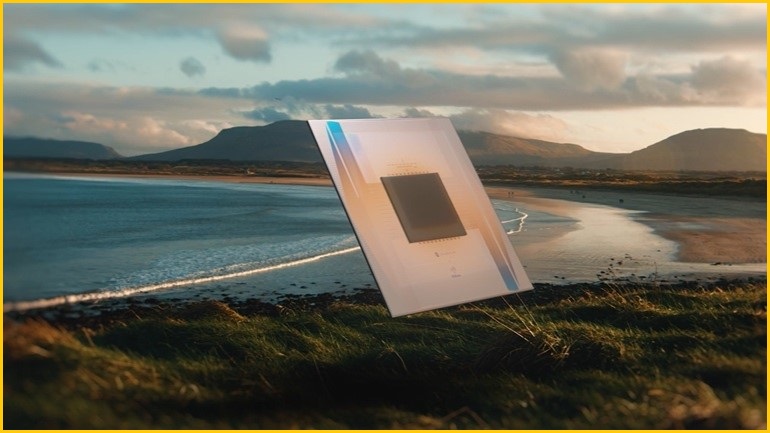Google has unveiled a “mind-boggling” new quantum computing chip that takes mere minutes to complete a task that would take a regular supercomputer longer than the lifetime of the universe to solve.
In a blog post this week, Google Quantum AI founder and lead Hartmut Neven announced the new Willow quantum computing chip, which is just a 4cm square and was made in Google’s new fabrication facility in Santa Barbara in the US.
The chip has demonstrated “state-of-the-art performance across a number of metrics”, Neven said.
The company tested the chip using the random circuit sampling benchmark, which assesses whether a quantum computer can do something that a classical computer cannot.
The Willow chip was able to complete these tasks in five minutes, while a supercomputer would take 10 septillion years to do so, a length of time that far exceeds the age of the known universe.
“This mind-boggling number exceeds known timescales in physics and vastly exceeds the age of the universe,” Neven said in the blog post.
“It lends credence to the notion that quantum computation occurs in many parallel universes, in line with the idea that we live in a multiverse.”
The new chip was also able to reduce error rate as the number of qubits being used was increased, cracking a “key challenge” in quantum computing.
“This is the most convincing prototype for a scalable logical qubit built to date,” Neven said.
“It’s a strong sign that useful, very large quantum computers can indeed be built.
“Willow brings us closer to running practical, commercially relevant algorithms that can’t be replicated on conventional computers.”
The Google team scaled the chip up from 3x3 encoded qubits, to 5x5 and then 7x7.
Each time the number of qubits was increased, the error rate was cut in half.
Real-life applications
A fully commercial quantum computer based on Google’s Willow will be able to work towards solving complex problems and discovering new medicines, Neven said.
“This includes helping us discover new medicines, designing more efficient batteries for electric cars, and accelerating progress in fusion and new energy alternatives,” he said.
“Many of these future game-changing applications won’t be feasible on classical computers; they’re waiting to be unlocked with quantum computing.”
Posting on X, Google CEO Sundar Pichai said the results are an “important step in our journey to build a useful quantum computer with practical applications in areas like drive discovery, fusion energy, battery design [and] more”.
Tesla CEO Elon Musk also commented on the new chip, simply saying: “Wow.”
Google Quantum AI was launched by the tech giant in 2012 with a goal of developing a useful, large-scale quantum computer capable of harnessing “quantum mechanics to benefit society by advancing scientific discovery, developing helpful applications and tackling societal challenges”.
Last year the company announced another major breakthrough, completing an experiment on its new 70-qubit system that would have taken a supercomputer 47 years to complete.
The quantum race
The race to develop a fault-tolerant commercial quantum computer is heating up, and Australia is looking to play a leading role in this global race.
Earlier this yea,r the federal and Queensland governments announced a near-$1 billion funding package for US firm PsiQuantum to base its attempt to build the world’s first utility-scale quantum computer in Brisbane.
Earlier this week the federal government took a $13 million equity stake in local quantum technology company Quantum Brilliance through the National Reconstruction Fund, which will go towards the building of a foundry for diamond-based quantum devices.










